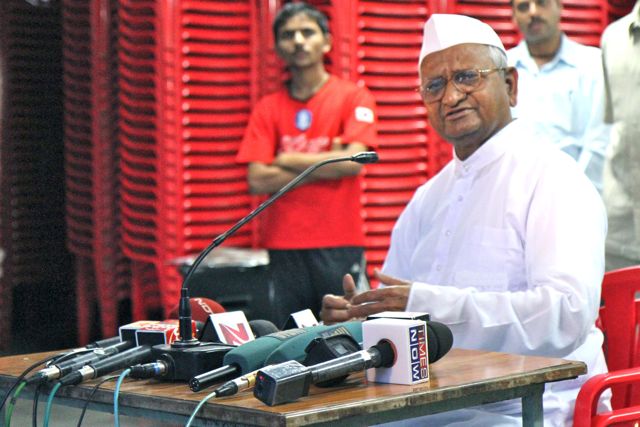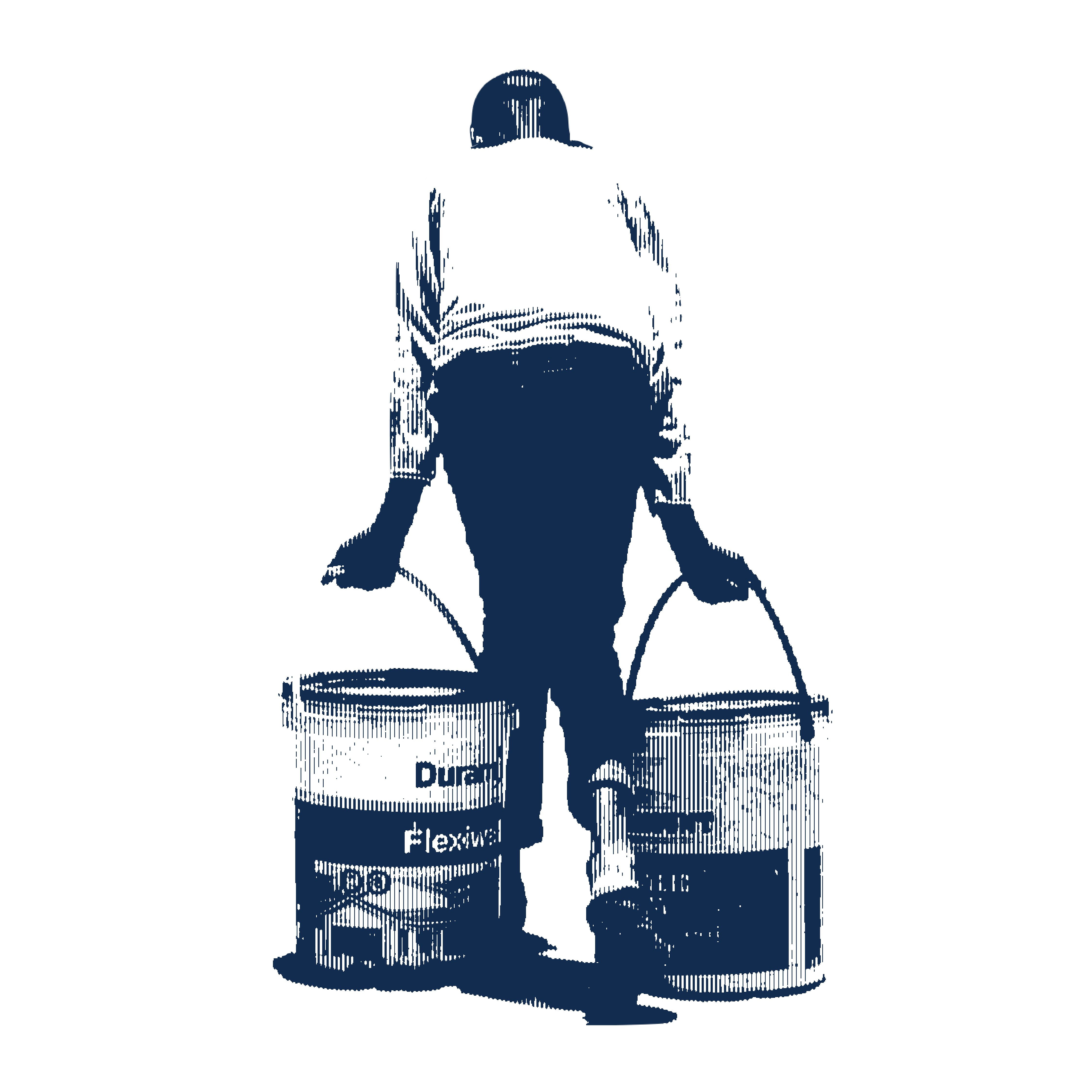
In rural India two people out of three lack basic sanitation facilities. Many women leave their homes at 4 am to find a place in an open field where they can defecate without being seen. Others may have access to latrines but these lack septic tanks or flush mechanisms. Cleaning these latrines falls to one segment of the population—the Bhangis (also called "scavengers"), part of the Untouchable (or Dalit) caste. Until recently their lives and the future of their children were tightly proscribed—they could marry only other Bhangis. Girls grew up to clean latrines and boys to collect garbage.
Bindeshwar Pathak, like all members of the Brahman caste, was taught early on to avoid the Dalits. In 1968, at the age of 25, he was invited to join a Gandhi Birth Centenary Celebration Committee. After learning about Mohandas Gandhi's work to stop discrimination against the lowest caste, he decided to spend three months living with the Bhangis. Those three months made all the difference. In the decades since Pathak has invented and manufactured environmentally sound (and inexpensive) toilets. He makes low-interest bank loans to facilitate their construction and distribution. And, at the same time he is developing training programs to allow "scavengers" to take on new jobs. Over 1.2 million people now use toilets built by Pathak and Sulabh, the organization he founded.
Pathak joined 500 health professionals, social entrepreneurs, academics, and government officials in Mumbai this October for the Global Forum on Sanitation and Hygiene, sponsored by the WSSCC— the Water Supply & Sanitation Collaborative Council. This Geneva-based organization focuses on improving sanitation and hygiene, especially the poor, in a world where 2.6 billion people live without toilets. Speakers and workshop leaders represented 70 countries: Half came from Asia, a third from Africa, and the remainder from Europe and the Americas. Members of the West Africa WASH Journalists Network and the WashMedia South Asia Network discussed ways to create greater public awareness of issues related to open defecation, as well increasing transparency and accountability of health and sanitation programs.
Workshop leaders shared the complexities and challenges of sanitation-related issues in heavily populated areas. What follows is just a sampling:
• "No loo. No 'I do'." Karin Hulshof, the UNICEF country representative for India, reported that village women are refusing to marry until their home is equipped with a toilet. (One woman from Maharashtra state is said to have told her husband that if Shah Jehan could build the Taj Mahal in honor of his wife, then her own husband could at least build her a toilet.)
• "Listen to the poor": Olivier Nyirubugara from the Voices of Africa Media Foundation makes it possible for those living in rural communities to tell their stories by giving them access to video cameras and mobile phones. Another organization, Video Volunteers, creates similar opportunities and has posted several sanitation-related videos.
• Focus on women: Many women have no sanitary pads and must resort to using dirty rags that lead to infections. If toilets are not available girls often drop out of school once they start to menstruate. Goonj, a non-profit based in New Delhi, distributes used clothing—and also makes reusable sanitary napkins out of recycled cloth. BRAC (Bangladesh Rural Advancement Committee), an organization that has been working to alleviate poverty since 1972, produces and distributes biodegradable sanitary napkins.
• Biogas power: Villages in Maharashtra India are developing and using toilets connected to biogas plants (which use fecal material to produce renewable fuel—thus reducing open defecation as well as the need for natural gas).
• Why the handwashing lag: Although programs are underway in Mali to promote handwashing, only 4.9% of boys and 5.3% of girls now wash their hands after using the latrine. Moussa Cissoko, a sanitation expert in Mali, explained that traditional beliefs have stymied the practice of handwashing. Many women believe that if they are too careful about cleanliness they will become infertile. Others have been taught that if you wash your hands regularly you will never be rich.
• Celebrities matter: Soccer, cricket and movie heroes are supporting sanitation and hygiene in a big way. Shahrukh Khan, a much-adored star called the King of Bollywood, stressed the importance of the fight for the right to safe sanitation for all. "I dream of an India where women and girls are no longer vulnerable," he says in a new video. "I dream of an India where people don't have to squat on streets or in bushes…. Toilets for all will make India cleaner and healthier. Women and girls will be liberated from shame and indignity. As Gandiji said, "Be the change that you want to see."
Forum participants visited the Dharavi—the Mumbai slum "featured" in Slumdog Millionaire. It's an area with close to 1 million residents, 20 times more dense than the rest of the city. The streets are narrow and congested, flies hover around the stalls where food is sold, loose wires protrude from the walls of dilapidated buildings, the air is filled with smoke from cooking, and mangy dogs lie motionless in the sun. Yet residents are extraordinarily industrious. The net worth of their labor is a remarkable $665 million (US) a year.
Some make soap (a black soap is especially popular for cutting through grease). Others make suitcases, embroider, or use traditional block printing techniques to produce textiles that will be exported all over the world. They manufacture clothing and leather goods (including jackets and wallets). They separate, crush, wash, dry, melt, and recycle plastic. One woman, dressed in a purple sari with large gold earrings, sits surrounded by mounds of empty eye drop bottles. She will sort them, making around $2.50 a day—income that allows her to send one of her children to a private school.
People here could not be more hard-working and yet they still lack basic sanitation facilities. Families share water taps and only a few have toilets. Public toilets have been built in designated areas but many people, especially children, avoid them—there simply aren't enough for such a highly populated small area. Urinating and defecating on the ground nearby or in the local river is the more common practice.
At the Forum much of the talk centered on ways to change sanitation-related behavior. Ifeoma Charles-Mowuba from ActionAid in Nigeria zeroed in on the gender inequities and stressed the importance of girls' participation in clubs or community theater. Louis Boorstin, deputy director for water, sanitation & hygiene at the Bill & Melinda Gates Foundation, told us "to think outside the water closet." He meant that literally and figuratively—the water closet is, after all, a rather antiquated invention. Siddharta Swarup from the BBC World Service Trust in India told us that people change behavior when there is no other choice. Our job is to make that choice so compelling that change is inevitable.
"Without dialogue, there is no conversation." he concluded, "Without conversation, there is no understanding. Without understanding, there is no trust. Without trust, there is no conviction. Without conviction, there is no behavior change."





